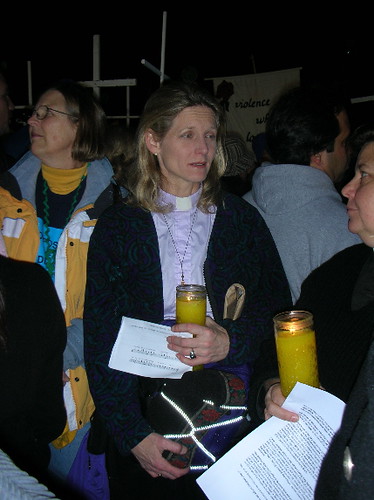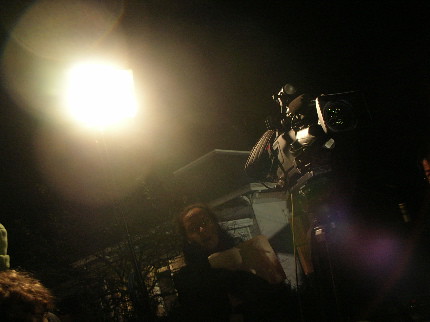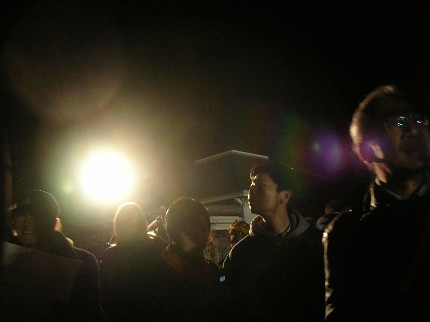By Mike Conway
Joyo Velarde could have been anything she wanted. At UC Davis, she pondered being a TV journalist. But after an internship with NBC, she found the corporate culture of television too shallow and fickle. But Joy’s true calling wouldn't find her at college; it had been with her long before.
We enter life with very little, we leave with even less. Though naked, we are born with a certain something to help us along the path bestowed on us. That something is how we communicate destiny to the world; discovering it and using it is our highest purpose.
Joyo Velarde was destined to sing. She has developed her voice since childhood. As a junior in college, Joy was very much in a shell. She was disillusioned with her academic path in journalism, perhaps a little bit shy, and not entirely confident with her singing voice.
At the same time, however, she had a relationship with this guy named Tom Shimura. Captivated by her voice, Tom urged her to make something of it. She took his advice and formally studied singing at Davis and San Jose State. The San Jo’ program eventually landed her a role in a world famous opera, where she performed live, onstage in Rome, Italy as the sultry Gianetta, a supporting role in Gaetano Donizetti’s L’elisir D’amore (The Elixir of Love).
Now, Joyo Velarde’s voice is heard by millions and it’s clear to her it was all meant to be. “In my growth as a person,” Joy says, “it’s definitely solidified in me that there’s a reason for everything.” Tom became known as Lyrics Born. The relationship they shared was true love and became marriage. And together their talents became a fluid union between a baritone emcee and a soprano songstress.
In 1996, Joyo sang back up to Lyrics Born on the underground hit “Balcony Beach”. The song flows like a scene in an opera. Our hero Lyrics Born lays on the railing of a oceanside balcony, musing on life in general and preparing a soliloquy. But first, Joy croons in from across water; her tone surges in with each wave, like she is the sea herself echoing about how she moves the sand with her tides.
Cut to 2003: LB releases his debut solo effort Later That Day, off Quannum Projects. The album has since exploded beyond expectation, and Joy plays a major role in that success. She sings back-up on several tracks, including “Love Me So Bad” which still rides atop the charts on major radio stations like LIVE 105.
Joy says her vocals have a distinct purpose when backing up Lyrics Born. “When we write together, [we] just try to make sure that both sides are represented, that we both represent the characters that we wanted.” She’s not your typical songstress that unconditionally validates a male emcee. Joy is an independent, balancing perspective; her presence in the mix adds a voice of reason with her own prerogatives while her partner lyrically navigates the tensions and tribulations of a man on a mission.
From a well-studied, classical voice across to the Mary J. Blige school of deep soul, Joy’s signing covers a range the size of Mongolia. It’s no surprise then that some of the tracks from Later on which she appears have emerged from the underground and into the mainstream. In the taxi-flick Collateral, Jamie Fox listens to “Love Me So Bad” in his cab. You can hear Joy along with Constance Lopez in a Diet Coke commercial that plays a couple bars of “Callin Out”.
Some longtime fans are taken aback by this commercial success. After all, Joyo Velarde and her Quannum cronies are some of underground hip-hop’s greatest treasures, and hell-no do we want pop culture hijacking our jewels. Still, Joy aint trippin. The important things in her life—inspirations like family and friends—remain true despite any commercial success. “The fam thing never changes,” she confides, “People hear our songs on commercials and think everything that comes with that is in place as well, but it’s not. If our music can get through to other people, what’s wrong with succeeding at that?” Indeed, people in far-away suburbs are now receiving small doses of high-quality hip-hop, albeit through the medium of slap-happy soda ads.
But Joy and her crew don’t go into recording studios to think up jingles for Coca Cola, but to make music as they always have. “It should always be about doing the next project. I don’t think anyone should get complacent.”
That next project for Ms. Velarde is her very own solo album. “We’ve been chipping away at it for about four to five years,” says Joy. That time-span served as a lesson in patience as she waited until things were just right for the project. “I’m definitely more confident with the way my voice is now,” she says, “I know the kind of instrument I have to offer.” Lyrics Born will produce most of the material (as he did on Later) and manage all the A&R (Artist & Repertoire) aspects.
She classifies her solo effort roughly as a soul record, though not in the traditional sense of the soul genre. Joy modestly asserts that her voice is not a typical instrument of the neo-soul variety; still, the solo focuses on one of soul’s greatest topics: “Love and everything that accompanies love.”
When asked if she has any sad love songs, Joy scrolls through her mental catalog of lyrics and comes upon one song about the father/daughter dynamic. “That’s the blueprint for the relationships you have [with men] for the rest of your life.” Joy explains that when a father is not there substantially or flat-out abandons his daughter, often times a girl grows up thinking “Okay, fuck it. All the men in my life are gonna leave me, so why should I give you my heart?”
Joy is also pondering some political topics as well, but no matter what the topic that she writes and sings about, Joy is somewhat self-effacing about her music. “I don’t believe it’s us making it. I believe it’s God, it’s the universe using us as voices, instruments, emcees, producers, to get some message out there.”
The instrument of Joy is not so much a talent as it is a gift. One gift of the many bestowed uniquely on us all. For Joyo Velarde, it’s not a question of what that gift is, “but the journey of trying to figure out where we can take that gift.”
Joyo’s journey to this point is thus a familiar one. Just when she was disillusioned and uncertain, other people and forces were conspiring to brighten her future. Her future—hell, the future of us all is made in the present; because it is in that moment alone that we all play together as instruments of destiny.










